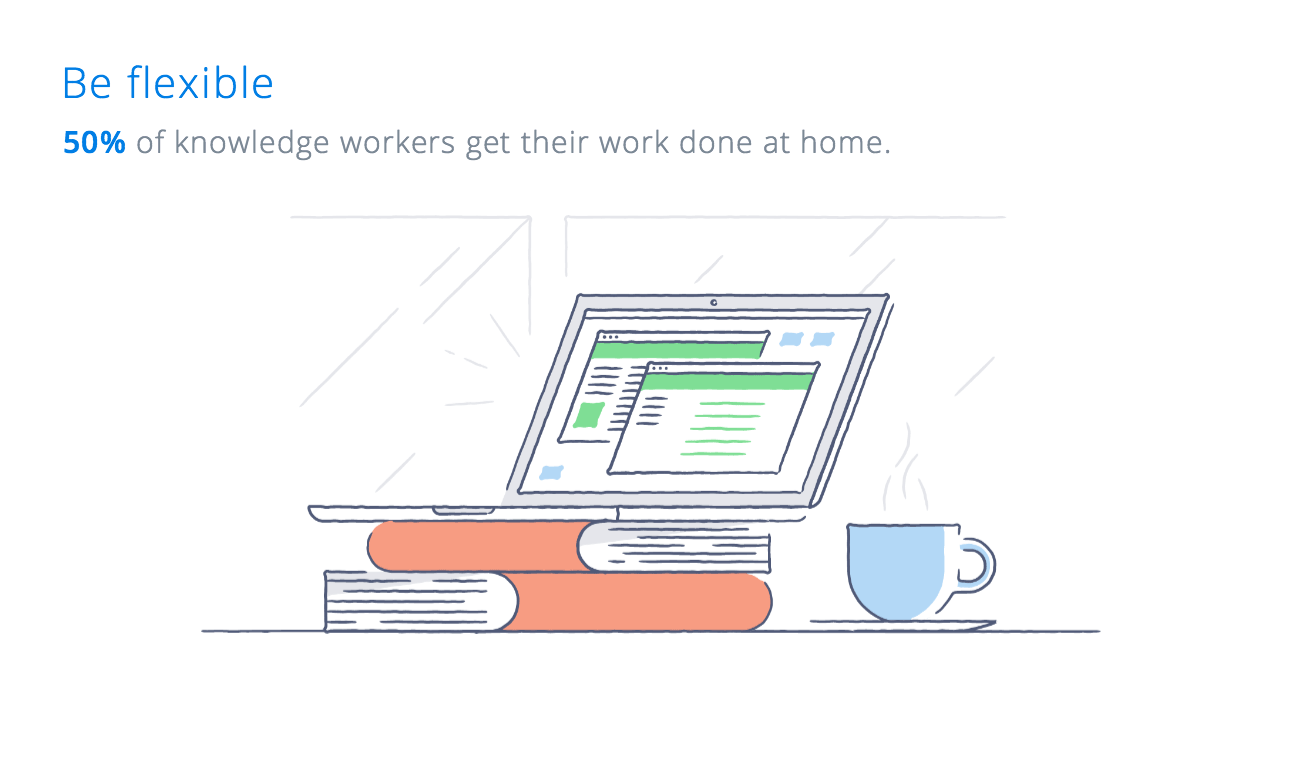
Why workplace flexibility has become essential for businesses
Published on September 08, 2016
Everything about the modern employee’s workspace is changing—both physical and digital. The ability to work remotely is more important than ever across all industries. And it’s no longer uncommon for businesses to offer flexible working arrangements. In a 2015 survey of 3,789 knowledge workers, Dropbox researchers found that 50% work from home at least part of the time. Regular work at home, among the non-self-employed population, has doubled since 2005 1. Workplace flexibility has become ever more common for good reasons:
1. Business demands it
The digitization of the workplace makes collaboration with customers and partners around the globe easier. That also means many of the people you work with expect answers faster, even if they’re in different time zones. “We’re really cognizant of the fact that this is a 24/7 job,” says Angela, a knowledge worker our research team interviewed in Atlanta. “Typically my boss doesn’t care how you get your work done or where you are, as long as it gets done. That makes everything easier.”
2. Employees expect it
Modern employees value the flexibility to get their work done on the go. And this can be a deciding factor in where they choose to work. “One in three workers report that being able to flexibly integrate work and life is the most important factor in choosing a job,” says Tracy Haugen, a director in Deloitte Consulting's human capital practice, and author of "Workplaces of the Future: Creating an Elastic Workplace."
3. Increased happiness and creativity
Our recent “Collective Creativity” survey from Ipsos MORI found that people are happier and feel more creative when they work in flexible and collaborative ways. The results were consistent across all six countries surveyed. People with both flexible and collaborative working conditions were 19% more likely than those with neither to be happy, and 34% more likely to feel creative in their work.
4. Increased productivity
The proliferation of mobile apps has enabled sales people, consultants, and others who travel for work to stay productive on the road. But those who don’t travel need to find ways to combat workplace distractions. The option to take work to a quiet space, within or outside the office, could make all the difference. In a 2016 Vodafone survey of 8,000 global employers and employees, 83% said adopting flexible working had resulted in improvements in productivity. Workplace flexibility has become essential for businesses looking to attract and retain top talent. With the right technology in place, business and IT leaders alike can ensure their employees remains engaged and productive. Dropbox makes it easy for employees to work anywhere, any time, from any device. For a deeper look at how your business can cater to the diverse needs of modern employees, check out our Get wise beyond your peers eBook.
1 “Latest Telecommuting Statistics,” GlobalWorkplaceAnalytics.com
Update (September 9, 2016): Adjusted link in first paragraph and added citation






